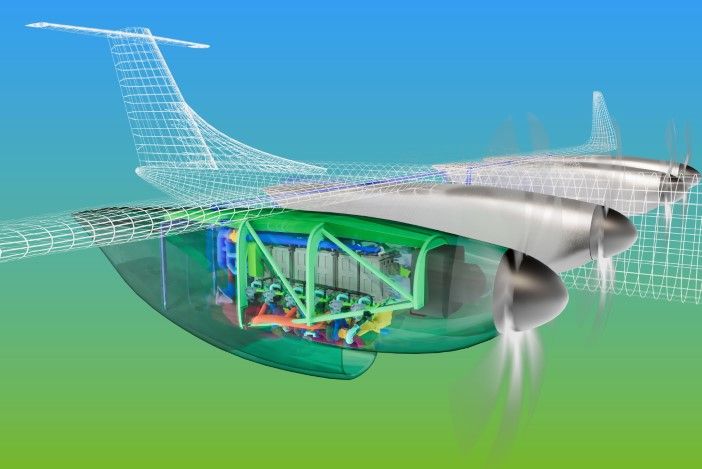MTU Aero Engines Advances Flying Fuel Cell Development for Clean Aviation
Key Ideas
- MTU Aero Engines has completed the design and started manufacturing fuel cell stacks for its Flying Fuel Cell, a 600-kilowatt electric powertrain for regional aircraft applications.
- The company has achieved multiple milestones, including successful testing of the eMoSys electric motor and commissioning the first test cell in Munich.
- The Flying Fuel Cell project is part of the HEROPS clean aviation research program, aiming to develop hydrogen-driven electric powertrains for regional aircraft by 2035.
- HEROPS involves industry partners like MT Aerospace, Collins Aerospace, Lufthansa Technik, and Eaton, as well as research partners Royal Netherlands Aerospace Centre and Technical University Vienna.
MTU Aero Engines in Munich, Germany, has made significant progress in the development of its Flying Fuel Cell, an electric powertrain designed for regional aircraft. The company has finalized the design, initiated fuel cell stack production, and successfully tested the eMoSys electric motor. Production is underway at MTU’s Munich facility. The 600-kilowatt powertrain project has also involved setting up testing infrastructure with hydrogen facilities. The initiative serves as the core of the HEROPS clean aviation research project, which aims to create hydrogen-driven electric powertrains for regional aircraft by 2035. The project involves several partners and is focused on demonstrating the feasibility and scalability of the technology. By working with industry partners and research institutions, MTU is paving the way for cleaner aviation solutions.
Topics
Fuel Cells
Aviation
Testing Infrastructure
Partnership
Technology Development
Research Project
Electric Powertrains
Latest News
